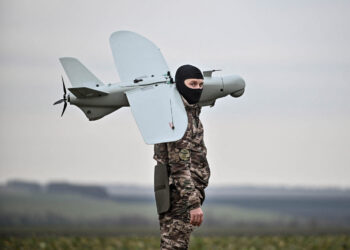,
WASHINGTON: President George W. Bush, searching for a new approach in Iraq, expressed little enthusiasm on Monday for seeking Syrian and Iranian help to calm Iraq as he cautioned Democrats against quick U.S. troop reductions.
Bush, who has stated a need for “fresh perspectives” on Iraq after his Republican Party received a drubbing in last week's congressional elections, met at the White House with the Iraq Study Group, whose report in a month could offer him a change of course in Iraq.
Engaging Syria and Iran on Iraq is an idea thought to be under discussion by the panel, and is a strategy promoted by Prime Minister Tony Blair, a staunch Bush ally.
Unrelenting violence in Iraq has added to the pressure on Bush as Baghdad reported that the bodies of 46 people had been recovered. A suicide bomb killed 11 Iraqis on a minibus and at least nine American and British troops were reported killed in the previous two days.
The violence, which underlined Iraqi Prime Minister Nuri al-Maliki's problems trying to curb the bloodshed, followed attacks that killed more than 100 people Sunday including a suicide attack on police recruits that killed 35 in Baghdad.
In London, Blair challenged Syria and Iran to be engaged in efforts to stem violence in Iraq and to secure a broader Middle East peace settlement.
In an annual foreign policy speech, Blair suggested a “new partnership” was possible with Damascus and Tehran that included making clear how they can help in the region while warning them of the consequences of hindering peace.
But Bush told reporters at the White House that Syria must get out of Lebanon and Iran should abandon its nuclear ambitions.
He pointed out that the United States had offered direct talks with Iran about its nuclear ambitions if Tehran would agree to stop uranium enrichment, though Iran has refused.
BLAIR TO ADDRESS PANEL
Blair is expected to give his views on Iraq via video conference on Tuesday to the Iraq Study Group, led by former Secretary of State James Baker, a Republican with close ties to the Bush family, and former Democratic Rep. Lee Hamilton of Indiana.
Carl Levin, a Michigan Democrat who will chair the Senate Armed Services Committee, said he had spoken to Republicans and thought there would be bipartisan support for a resolution urging a change of course in Iraq.
“We've got to put greater responsibility on the Iraqis and that the way to do that — probably the only way to do that — is to let the Iraqis know that within four to six months of the president notifying them, that we're going to begin a phased redeployment of our troops out of Iraq,” he said.
Asked about the Democrats' push for a withdrawal, Bush said he believed it was important “for people making suggestions to recognise that the best military options depend upon the conditions on the ground.”
Gen. John Abizaid, the head of U. S. Central Command, met Maliki to discuss security. “The influence of neighbouring states on security in Iraq was also discussed during the meeting,” Maliki's office said.
Maliki, a Shi'ite, has been under pressure from U.S. officials to show progress in curbing violence, particularly by Shi'ite militias linked to some of his political allies.
He has threatened to fire underperforming ministers and said he will not stick to “quotas” of cabinet posts according to parties' strength in parliament but would appoint those competent for their tasks. Iraq badly needs that with its economy still in a morass despite high oil prices and its ministries accused of rampant corruption.
Alaa Meki of the Iraqi Islamic Party, part of a bloc of Sunni parties in government, said the defence and interior ministry portfolios were the crucial issue and called for “real and tangible” action from Maliki against militias.
Sunnis, dominant under Saddam Hussein, have threatened to quit the government if they are not given a bigger role.
(Additional reporting by Mussab Al-Kharailla, Alastair Macdonald in Baghdad, and by London and Washington bureaux)









